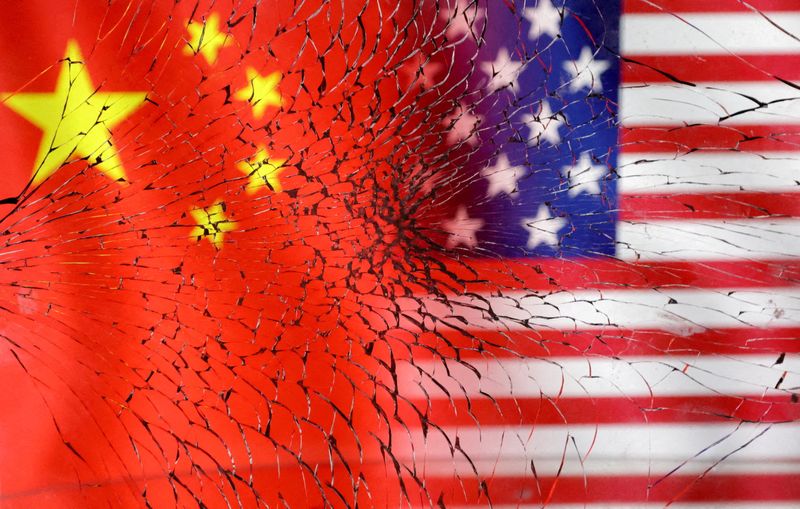China’s Imposition of Sanctions on U.S. Military Firms Raises Tensions Over Taiwan Arms Sale
With tensions escalating between China and the United States, China has made a bold move by imposing sanctions on 13 U.S. military firms in response to the recent arms sale to Taiwan. This move highlights a significant escalation in the ongoing conflict between the two global powers and raises further concerns about the stability of relations in the region.
The arms sale to Taiwan, a self-governing island that China views as a renegade province, has been a longstanding point of contention between the U.S. and China. The recent sale of weapons, including advanced missile systems and drones, has further strained relations and led to China’s retaliatory sanctions on American companies involved in the arms deal.
China’s decision to impose sanctions on U.S. military firms demonstrates its willingness to take strong action to defend its national interests and assert its dominance in the region. By targeting specific companies involved in the arms sale, China aims to send a clear message to the U.S. about the consequences of interfering in sensitive issues such as Taiwan.
The imposition of sanctions is likely to have far-reaching implications for both countries and could exacerbate existing tensions. The move could lead to a further deterioration of relations between the U.S. and China, as well as impact trade and economic ties between the two nations.
Furthermore, the escalation of tensions over the Taiwan arms sale raises concerns about the potential for military conflict in the region. China has not ruled out the use of force to reunify Taiwan with the mainland, and the U.S. has pledged to defend Taiwan in the event of an attack. This dynamic has the potential to spark a larger conflict that could have serious consequences for the entire region.
In response to China’s sanctions, the U.S. has denounced the move as unproductive and unhelpful and reiterated its commitment to Taiwan’s security. The U.S. has also warned China of the consequences of its actions and called for a de-escalation of tensions in the region.
As tensions continue to simmer between the U.S. and China, the situation in the region remains volatile and unpredictable. The imposition of sanctions on U.S. military firms is a clear signal of China’s determination to defend its national interests, while also raising concerns about the potential for further conflict in the region.
Overall, the escalation of tensions over the Taiwan arms sale underscores the complex and delicate balance of power in the Asia-Pacific region and highlights the need for careful diplomacy and strategic engagement to avoid a larger conflict that could have far-reaching consequences for the global community.



